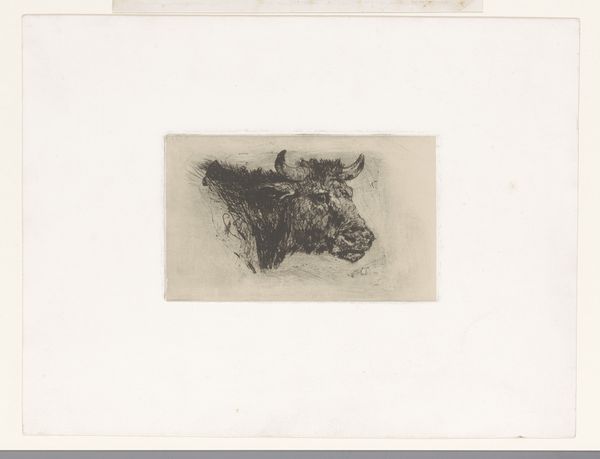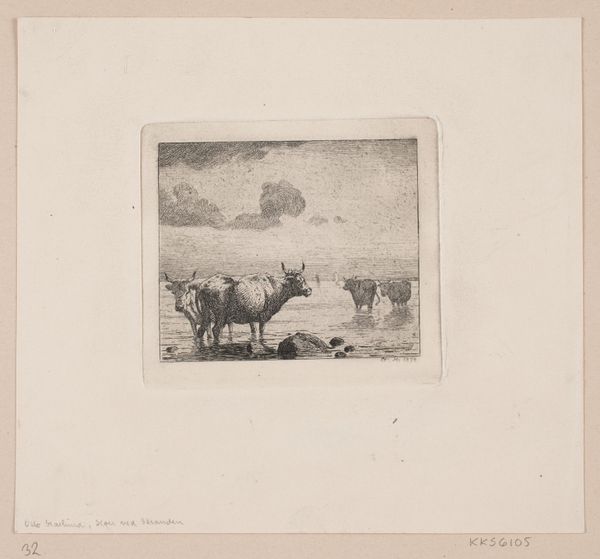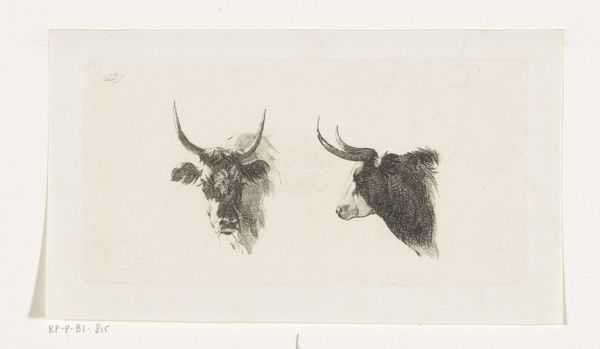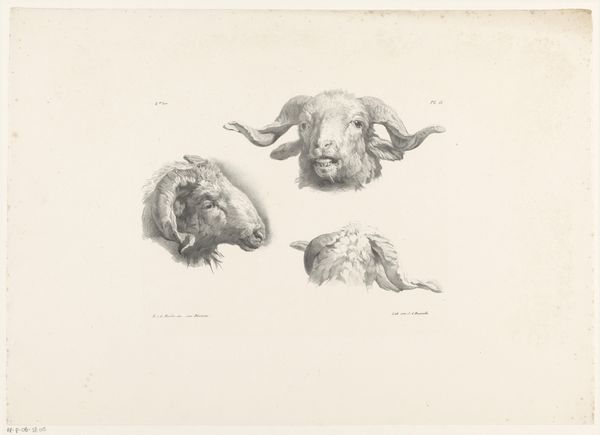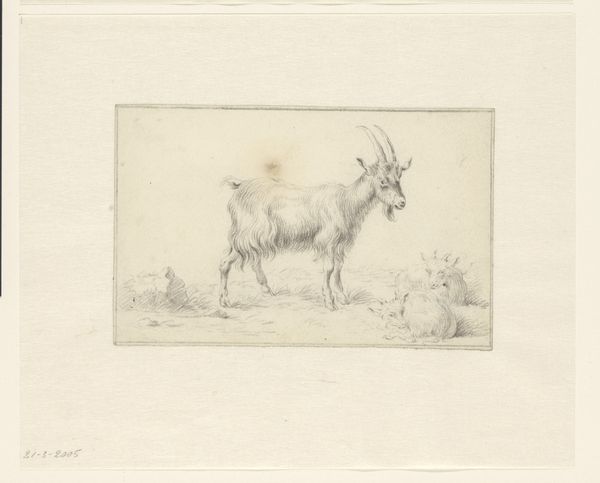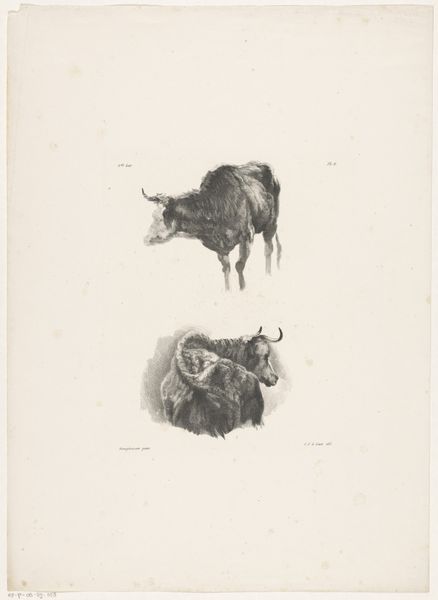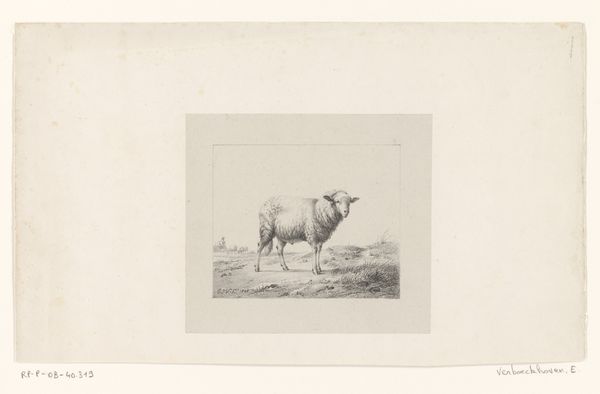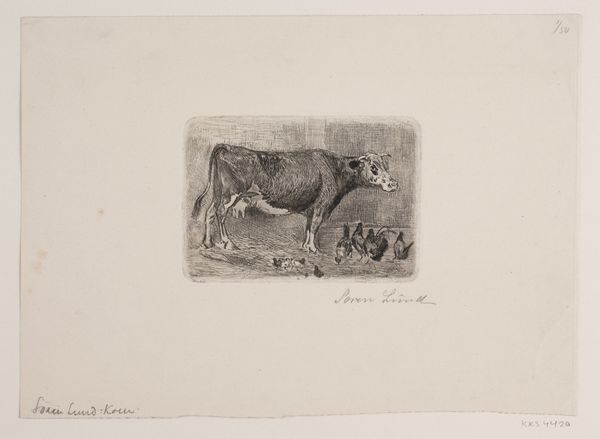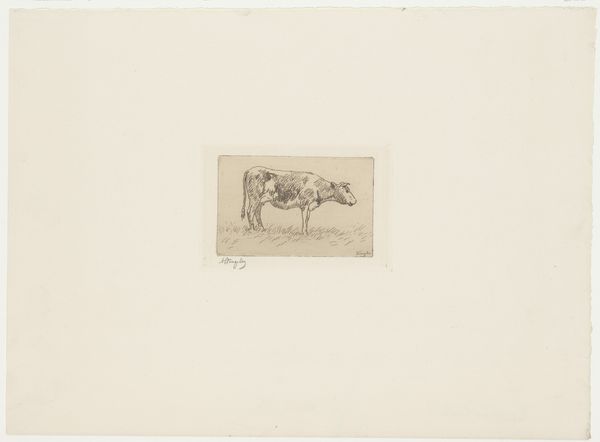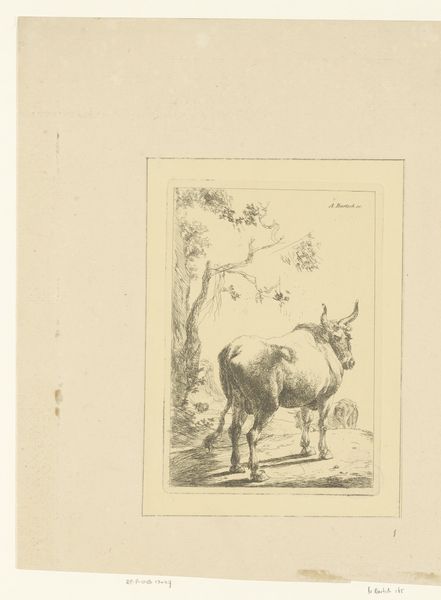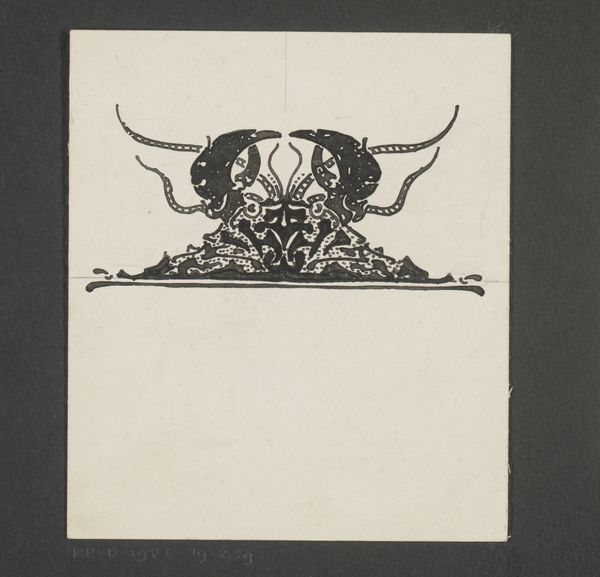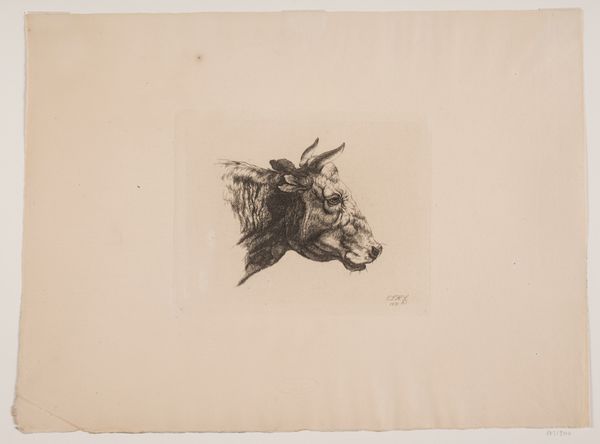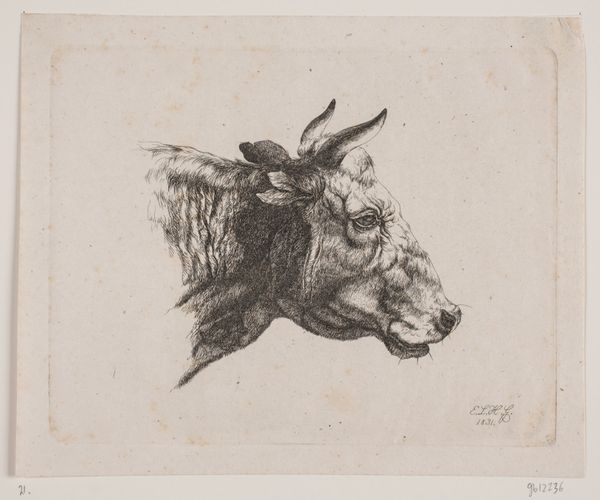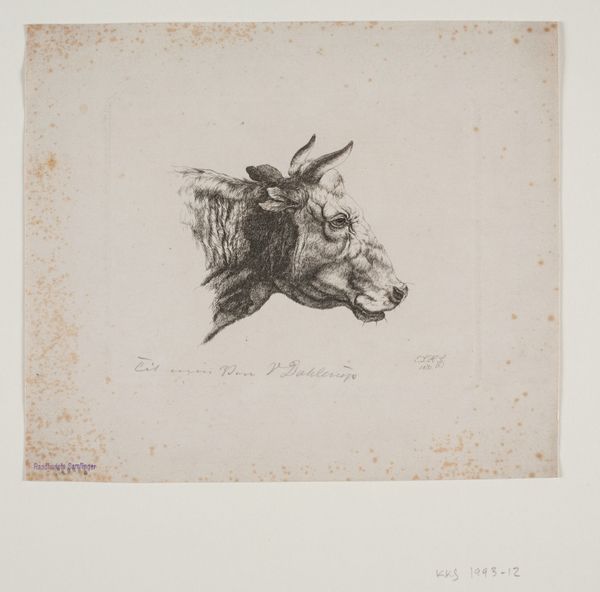
drawing, paper, ink, engraving
#
portrait
#
drawing
#
animal
#
paper
#
form
#
ink
#
line
#
engraving
#
realism
Dimensions: height 86 mm, width 75 mm
Copyright: Rijks Museum: Open Domain
This is Adam von Bartsch’s “Head of a Goat”, an etching made sometime before 1821. The dominant image is the goat's head, rendered with striking detail. Its horns, powerful and curving, immediately evoke associations with virility, potency, and untamed nature, while the animal's shaggy beard hints at wisdom. Historically, the goat has held a complex symbolism. In some contexts, it represents fertility and abundance, linked to pastoral life and agrarian societies. Yet, the goat is also associated with darker forces; its image appears in various pagan rituals, often linked to Dionysian rites and, later, in the Christian imagination, to the Devil. Consider the ancient Greek satyrs, part-human, part-goat beings embodying primal desires. We can trace this symbol through history, reappearing in medieval bestiaries as a sign of lust and unbridled instinct. It is as if the image of the goat taps into a deep reservoir of collective memory, stirring primal fears and desires within us. These resurface, transformed yet recognizable, engaging viewers on a subconscious level.
Comments
No comments
Be the first to comment and join the conversation on the ultimate creative platform.
